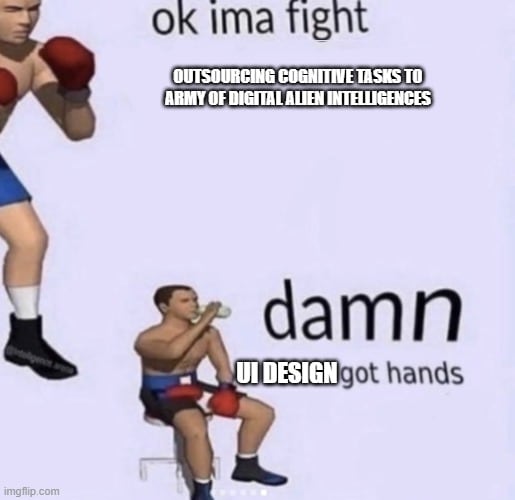(note: lots of discussion happened in the comments, you'll want to read it if you found this post interesting)
TLDR:
- Building powerful human-AI collaboration tools in the open removes capabilities overhang, which reduces discourse lag, which reduces x-risk.
- Alignment work is philosophy/writing/thinking-heavy, capabilities work is coding-heavy. Cyborg tools are more for the former than the latter, and great coding tools already exist.
Only goal is to reduce x-risk
Given this, "safety concerns" like "but what if someone uses your app and discovers jailbreaks or hacks somebody" are not actually a problem. (maybe even net positive, since they "update discourse" on unknown dangers, more on this later)
Specifics of capabilities work versus alignment work
(tldr: cyborg tools help... (read 791 more words →)

Editability and findability --> higher quality over time
Editability
Code being easier to find and easier to edit, for example,
makes it more likely to be edited, more subject to feedback loop dynamics.
Same applies to writing, or anything where you have connected objects that influence each other, where the "influencer node" is editable and visible.
... (read more)